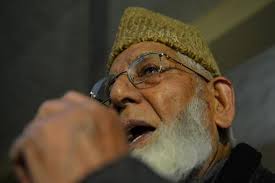Of late a number of experts have been suggesting new solutions to Kashmir. Most of them are sitting outside J&K. They think that their telescopic view offers them a clearer picture of the conflict than the people living with the day-to-day brutalities of violence. The distance, they argue, enables them to disseminate a dispassionate and balanced view of the trouble.
There is absolutely nothing wrong with this view, but the problem is that they live on borrowed strategies and formulas that have no connection whatsoever with the reality in J&K.
Kashmir is a human problem, others argue that it is an unaddressed issue of political and historical dimensions. Islamabad’s view — loudly articulated by its supporters among some Kashmiris — that the right to self-determination to the people of Jammu and Kashmir is the only way forward has always touched a raw nerve in India. Delhi sees it as a problem of Pakistan-sponsored terrorism. These divergences need to be filled with trust.
Separatist leader Syed Ali Shah Geelani on Saturday demanded seriousness and sincerity from all three stakeholders – India, Pakistan and the people of Kashmir —- to find a way forward for Kashmir. He demands a clear agenda. In a way, it seems that he is doing away with his age-old orthodoxy of insisting on the right to self-determination. It may very well be a hypothesis because Geelani and Pakistan are indistinguishable. But that should not be the reason to dismiss his idea outrightly, rather he should be pressed for what he means by a “clear agenda.”
Geelani represents a thought that many Indians think is in sync with Pakistan and promotion of terrorism. Reflections of that are seen when he confers “martyrdom on the youth” or calls for more sacrifices for what he calls the “sacred cause”. More than that, at times, his silence is intriguing. When policemen and civilians are abducted from their homes and killed brutally, his statements are bereft of any comments. The situation demands that he should be clear on his stand on various forms of violence as he is seeking to anchor a solution to the Kashmir crisis.
The call for demilitarisation of Jammu and Kashmir is not new. It was part of his five-point formula during the peak of the 2010 stone-throwing protests. His aura is not the same what it was eight years ago when youth toned down their protests on his appeal.
Why should Indians be listening to him, when it is confirmed in the hard disk of secessionism that he is a hardcore anti-India voice. Surely, there should be no reason to listen to him when we know that he is promoting secessionist agenda. A more striking question then is that why leaders from different governments at the Centre have made open and not-so-open offers of talks to him? The only answer is that he is a high-profile symbol of Kashmir resistance.
Second, it is clear to us all that the Kashmir problem that is dismissed as a problem of “Sunni Muslims”, ISIS-inspired ideology or restricted to one or the other part of the Valley has adversely impacted the image of the country. India is a progressive country and has an economy that it can boast of. Its technological achievements are unmatched, but something is still amiss. There is something wrong in the backyard, and that is Kashmir.
It is a strategic and moral obligation of Geelani to make his suggestion clearer. The demilitarisation is possible only when the source of violence is curbed once and for all. The bloodletting is a two-way ticket. Geelani knows it, but rarely refers to the violence unleashed by militants.
Let him not use the word ceasefire, but call a halt to violence in all its forms and manifestations that can propel him to being the anchor of the resolution. It is a hard task, but he can make it easy, if he wishes so.
To anchor Kashmir solution, Geelani must rise to the part




